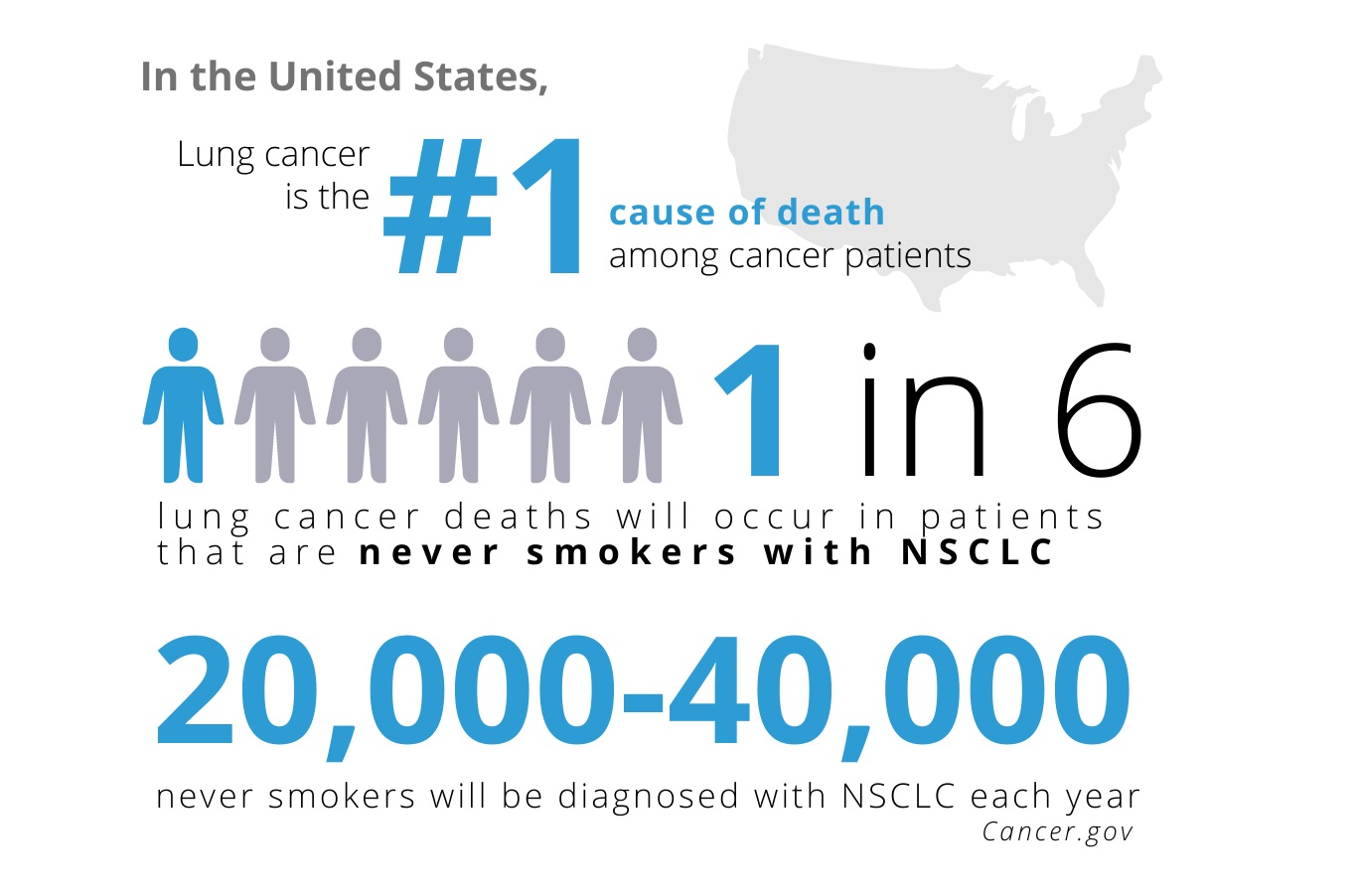Lantern Pharma Reports 86% Clinical Benefit in NSCLC Trial, Initial Patient Cohort
Lantern Pharma has announced positive preliminary results from the ongoing Phase 2 HARMONIC clinical trial, targeting never smokers with advanced non-small cell lung cancer (NSCLC) who have developed resistance to tyrosine kinase inhibitor (TKI) treatments. The trial focuses on evaluating the efficacy and safety of Lantern's drug candidate, LP-300, in combination with standard-of-care chemotherapy agents pemetrexed and carboplatin.
Background
The proportion of never-smoking patients with non-small cell lung cancer (NSCLC) has increased significantly worldwide over the past 30 years, rising from 15% in the 1970s to 33% in the 2000s. This trend is particularly notable in East Asian countries, with Japan reporting an estimated 33% to 40% of new NSCLC cases among never-smokers, and Taiwan reporting over 50%.
Lantern has received regulatory approval to initiate the LP-300 clinical trial in several Asian countries and has begun activating sites in Japan and Taiwan, including the National Cancer Center in Tokyo, a globally recognized center for cancer research.

US NSCLC statistics
Trial Results
In the initial safety lead-in cohort consisting of seven patients, six experienced clinical benefit from the LP-300 and chemotherapy combination. Among these, three patients exhibited partial responses with an average tumor size reduction of 51%, while three patients maintained stable disease with an average tumor size reduction of 13%. These results translate to a clinical benefit rate (CBR) of 86% and an objective response rate (ORR) of 43%.
Preliminary safety data indicated no dose-limiting toxicities or treatment-related serious adverse events, suggesting a consistent safety profile for the LP-300 combination. The most frequently observed adverse events included decreases in white blood cell count and platelet count.
The trial's findings were noted irrespective of prior TKI treatments, patient demographics, and metastatic disease sites. Additionally, patients with low to intermediate tumor mutation burden (TMB) showed responsiveness to the LP-300 and chemotherapy regimen. This subgroup of patients typically shows limited response to existing immuno-oncology therapies.
About LP-300
LP-300 is a disulfide small molecule that targets multiple tyrosine kinase receptors and cell redox enzymes. It is designed to modulate cellular redox states in key signaling pathways associated with non-small cell lung cancer (NSCLC) and to interact with tyrosine kinase receptors through cysteine modification. LP-300 aims to enhance the efficacy of chemotherapy by potentially reversing resistance mechanisms in cancer cells.
Previous studies, both published and unpublished, have indicated that LP-300 can bind to and inhibit the activity of various tyrosine kinase oncogenes such as EGFR, ALK, ROS, and MET-1, which are more frequently mutated in never smokers compared to smokers. The drug has been evaluated in multiple clinical trials, demonstrating its potential to improve outcomes when combined with traditional chemotherapy agents.
Role of RADR Platform
Lantern Pharma's artificial intelligence platform, RADR, contributed significantly to the advancement of LP-300 by validating its mechanisms and identifying insights into targeted patient populations. RADR integrates over 100 billion data points and advanced machine learning algorithms to enhance oncology drug discovery and development.
See also: How AI Enables Precision Oncology
Further Plans
The HARMONIC study is progressing to the randomization and expansion phase, aiming to enroll up to 80 additional patients. This phase will evaluate progression-free survival (PFS) and overall survival (OS) outcomes for patients treated with the LP-300 combination versus those receiving chemotherapy alone.
Lantern Pharma is continuing to collect and analyze patient response data from sites in the U.S. and Asia. If additional data confirm their preliminary findings for clinical benefit and/or objective response rates, Lantern will consider applying for a Breakthrough Therapy designation. According to the FDA, this designation is intended to expedite the development and review of drugs that treat serious conditions, where preliminary clinical evidence indicates substantial improvement over available therapy on clinically significant endpoints.
Currently, no therapy has been specifically approved for never-smokers with NSCLC, highlighting a significant and growing global clinical need, which Lantern estimates to have an annual market potential exceeding $2 billion USD.